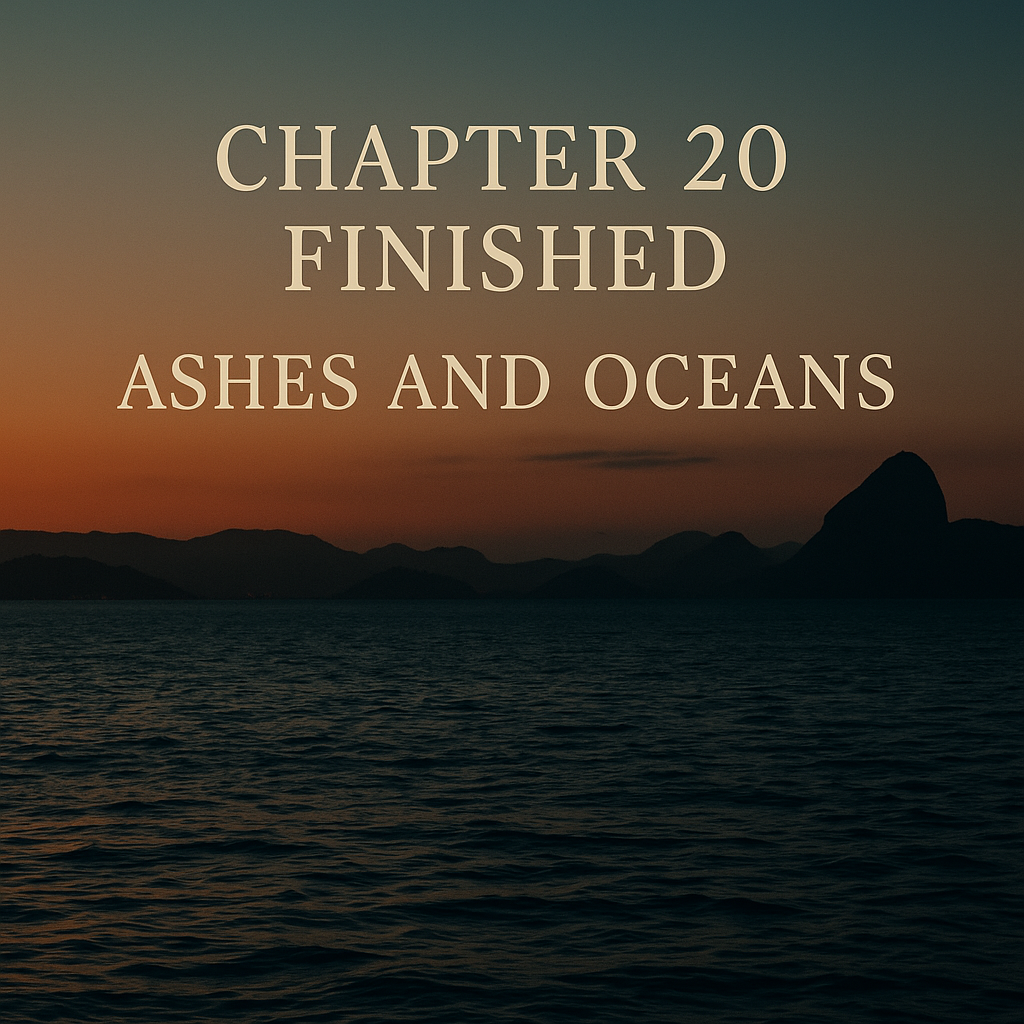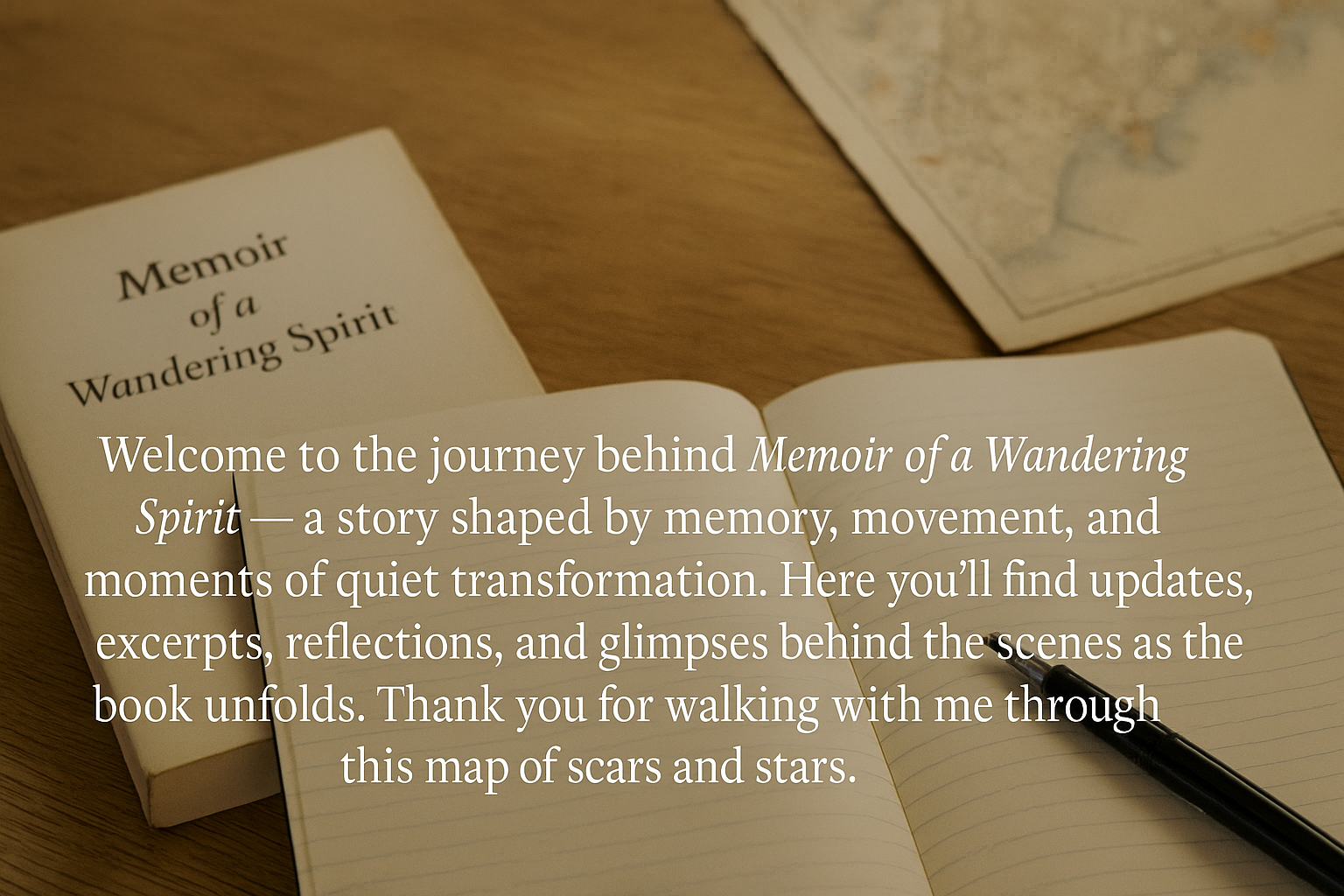Chapter 20: Ashes and Oceans — Complete 🌍

Chapter 20: Ashes and Oceans — Complete 🌍
Another chapter is complete — Ashes and Oceans — and it feels like one of the most intimate so far.
The story follows Kacper’s return to Angola, to the land that once shaped him and now welcomes him back with both warmth and unease. It is 2003: the war has ended, but its ghosts still live in craters, in memories, in the slow rebuilding of lives and hope.
He arrives in Luanda, stepping off the plane into the heavy, coastal air. The city stretches before him, still wounded and magnificent — colonial façades dissolving into tin roofs and dust. Ashes and oceans — beauty and devastation intertwined, neither yielding to the other.
This time, Kacper works with Global Nutrition International, a small humanitarian organisation determined to restore a fragile balance between need and capacity. He meets Javier and Isabel, Manuel and Elena — colleagues whose lives blur the line between duty and exhaustion. Together, they form a temporary family of sorts, united not by perfection, but by persistence.
“Angola in 2003 was a country trying to rise from decades of war, but the war had not yet loosened its grip. Its ruins were not only in shattered bridges or burned villages — they lived in the fragile bodies of its people.”
From Luanda, the road leads south, through Lubango, Matala, and Chipindo, where red dust coats the trucks and every movement feels like an act of resistance. Convoys crawl through minefields. Planes bring food, medicine, and the illusion of control. The work is relentless, and often feels insufficient.
Kacper’s vulnerability threads through the chapter quietly but persistently. He struggles with his body — heavier now than before, self-conscious, uneasy in his own skin. In group meetings and dinners by the sea, he feels both part of the mission and apart from it, burdened by the thought that perhaps he is not doing enough, not fitting the image of what he once imagined a “real humanitarian” should be.
“He did his job, filled the spreadsheets, wrote the reports, counted the rations — yet he could not escape the sense that the work was only a bandage over something vast and unhealed. He wanted to do more, to be more, but the limits of the world, and his own, pressed in like heat.”
An explosion near Chipindo changes everything. He survives, but his hearing does not — a ringing remains, constant and merciless. It becomes his companion, a reminder that service always costs something, even when invisible to others.
In Luanda, he finds a fragile source of light in Pombinha, a friend whose laughter softens the hard edges of his days. She brings warmth, humour, and an unexpected tenderness — a reminder that kindness can survive even where life feels precarious. Their bond is never named, but it anchors him.
“Pombinha had a way of seeing through him — through his pride, his fatigue, even his shame. Her presence did not erase his loneliness, but made it bearable.”
After long months of exhaustion, he finally allows himself to escape — briefly, impulsively — to Rio de Janeiro. There, in the rhythm of the city, he meets Camila, whose presence unravels him in ways he didn’t expect. Their time together is filled with light, laughter, and a longing that both heals and unsettles. Yet beneath the beauty lies guilt: a sense of betraying his own discipline, his own ideals.
“Rio was all movement — music, bodies, colour — and yet he felt strangely exposed within it, as if the city’s light had nowhere for him to hide. Camila made him laugh, but when she looked at him too long, he saw himself reflected in her gaze: a man both yearning and afraid.”
“That night, as waves broke against the dark beach, he realised that joy and regret often walk hand in hand. The world could still be tender, even when it refused to forgive.”
The story moves between the coast and the interior — between despair and resilience. There are days when the work feels futile, others when a single delivery, a repaired well, or a saved child carries the weight of redemption.
In Benguela, by the ocean, the team retreats for a few days of uneasy rest. The sea crashes endlessly, carrying both beauty and guilt — a reminder of what remains undone.
“At night the sound of the ocean drifted faintly up into Lubango’s hills, far off yet insistent, mingling in his mind with the high, merciless ringing in his ears. Ashes and oceans: beauty and ruin bound inseparably, neither yielding to the other.”
The chapter closes with quiet reflection — Kacper standing at the shoreline, aware that he has changed again. He understands now that vulnerability is not weakness, that failure is often the twin of effort, and that even imperfect work can carry meaning.
🌊 Related Photo Galleries
• 🇳🇦 Namibia — echoes of the red earth and the open horizon
• 🇦🇴 The Angolan Coast — where the Atlantic breathes against the scars of war
• 🇺🇸 The Big Apple — a reminder of the other world waiting beyond field missions
• 🇧🇷 A Visit to Rio de Janeiro — where beauty, temptation, and reflection intertwine
Ashes and Oceans is a meditation on aftermath — on what remains when the adrenaline fades, when the job is done but never finished. It is about fatigue, imperfection, friendship, and the stubborn grace that keeps us trying anyway. And it is also about the vulnerability of feeling — that brief, disarming truth that even those who give their lives to the world still crave tenderness.

